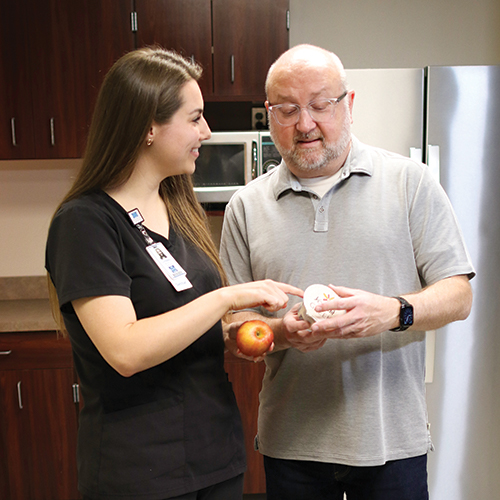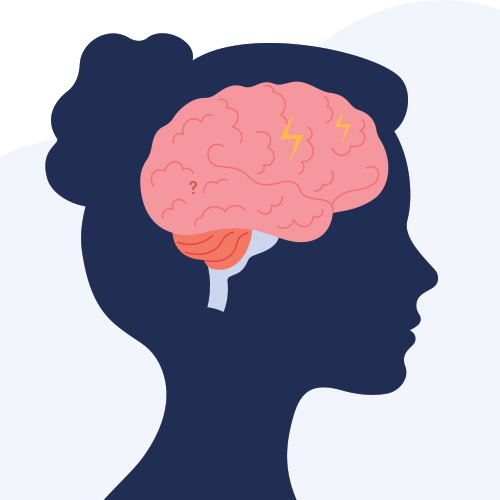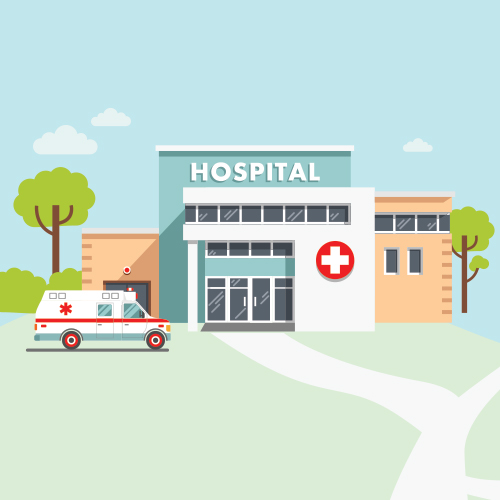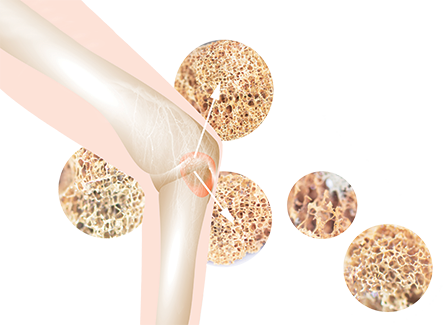
Health Expert

Jackie Werner, MD
OB-GYN
816.452.3300
Read more about Dr. Werner's approach to women's health.
Osteoporosis is a common bone disorder affecting more than 10 million people in the U.S. Women experience this disorder four times as much as men, so it’s crucial to know how to reduce your risk early and prevent bone fractures.
What Is Osteoporosis?
Osteoporosis occurs when bone density and mass decrease significantly, causing bones to become weak and brittle. Bone is a living tissue that is constantly breaking down and replacing itself. Over time as women age, bone creation can become slower than bone loss.
What Are the Symptoms?
For most, osteoporosis is asymptomatic, especially in the early stages of the disease. Some women may notice back pain, loss in height and posture changes.
What Are Risk Factors?
Several factors can increase the risk of developing osteoporosis, including:
- Being Caucasian or Asian
- Having a family history of osteoporosis
- Living a sedentary or inactive lifestyle
- Smoking tobacco or drinking alcohol
- Starting menopause early
- Taking certain medications, like specific blood thinners, some seizure medications and steroids
How Is It Diagnosed?
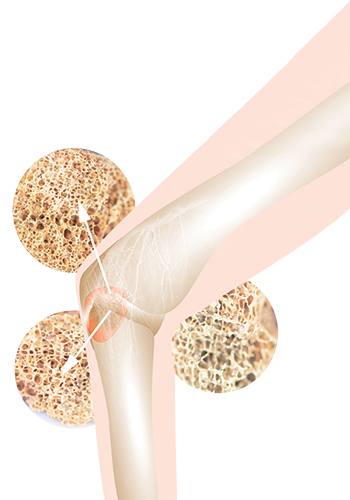 It is recommended that women screen for osteoporosis at age 65, or earlier if there’s a health condition present that affects bone strength, such as celiac disease, diabetes, inflammatory bowel disease, lupus or rheumatoid arthritis. A bone scan, known as a Dual-Energy X-ray Absorptiometry (DEXA), screens the density of a bone and generates a “T score.” This score compares the scanned bone to women at a young, healthy adult age. The lower the T score, the more likely a woman will be diagnosed with osteoporosis.
It is recommended that women screen for osteoporosis at age 65, or earlier if there’s a health condition present that affects bone strength, such as celiac disease, diabetes, inflammatory bowel disease, lupus or rheumatoid arthritis. A bone scan, known as a Dual-Energy X-ray Absorptiometry (DEXA), screens the density of a bone and generates a “T score.” This score compares the scanned bone to women at a young, healthy adult age. The lower the T score, the more likely a woman will be diagnosed with osteoporosis.
How Is It Treated?
Treatment for osteoporosis may include lifestyle and home remedies or medications.
“Some osteoporosis treatments, like medications, come with risks, so determining if treatment is the right choice can be complex,” said Jackie Werner, MD, Club W medical director and OB-GYN with Meritas Health Pavilion for Women. “Patients and their care team should consider the risks and benefits of their options. This includes exploring their overall health and activity level, and potentially incorporating methods to conserve bone density, like weight-bearing exercises and supplements.”
Osteoporosis can affect many women as they age, but there are ways to get ahead of it before starts or worsens. If you have any of the osteoporosis risk factors, speak with a Meritas Health OB-GYN to learn more and get screened. If you have been diagnosed with osteoporosis, reach out to your primary care provider for treatment and support.
Related Articles
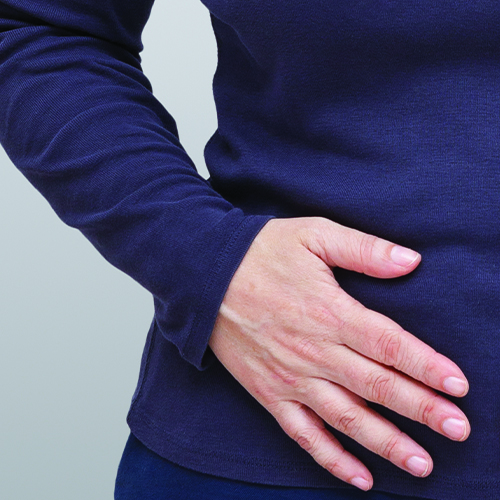
March 9, 2020
3 Sneaky IBS Triggers
For people with irritable bowel syndrome, spring may spark a flare-up in symptoms

June 5, 2024
5 Consejos Sobre Nutricion para un Estilo de Vida Mas Saludable
Una alimentación saludable y una nutrición adecuada desempeñan un parte importante a la hora de mantener una buena salud. Aquí le mostramos cómo mejorar sus hábitos nutricionales.

May 31, 2024
5 Nutrition Tips for a Healthier Lifestyle
Healthy eating and proper nutrition play a big part in maintaining good health. Here's how to improve your nutrition habits.
